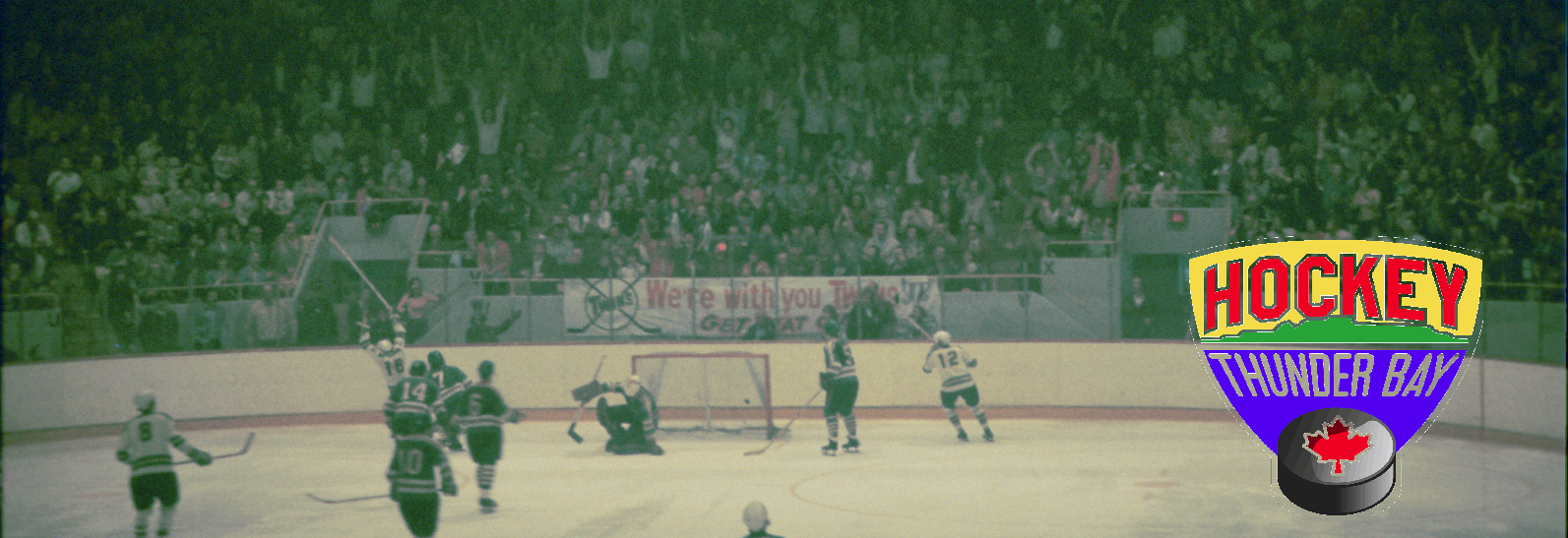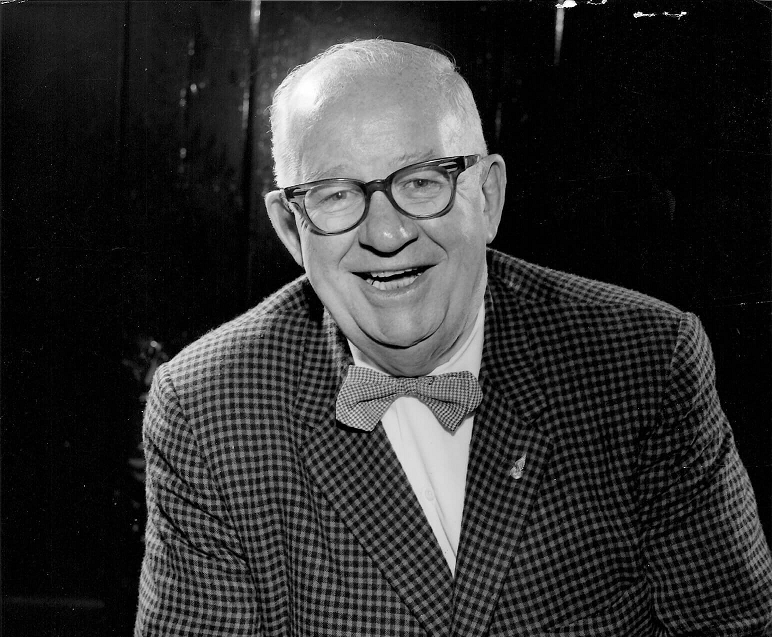John James “Jack” Adams
Born: June 14, 1895 – Fort William, Ontario
• Honoured member of the Hockey Hall of Fame (1959)
• NHL coach of the year trophy named in his honour (1974)
• Inducted into Northwestern Ontario Sports Hall of Fame (1985)
• Inducted into Michigan Sports Hall of Fame (1955)
• Lester Patrick trophy for his efforts in hockey in the United States (1966)
• Only individual to have his name on the Stanley Cup as a player, coach & G.M.
• Jack Adam ‘s career playing & coaching statistics courtesy of Hockey Database
Bio (Courtesy of the Hockey Hall of Fame): Born June 14, 1895 in Fort William Jack Adams went on to hold the distinction of being the only man to have his name engraved on the Stanley Cup as a player, coach and general manager.
Although he was inducted into the Hockey Hall of Fame as a player, Jack Adams spent the greater part of his life as coach and general manager of the Detroit Red Wings.
As a skater, his fame was established during the war when he played in Peterborough with the 247th Battalion team. The next season he joined the old Toronto Arenas during the inaugural NHL season, 1917-18, where he won his first Stanley Cup. After one more season with Toronto, he moved to Vancouver and played in the Pacific League for the Millionaires for three years.
In Vancouver, he did something no one has done before or since. In the last game of the 1920-21 season, against Victorias, he accidentally scored a goal into his own net. For reasons unknown, the referee nonetheless awarded Adams with having scored a goal, so he became the only player ever to be credited with an own goal! The next year, he won the scoring title in the PCHL.
Adams returned East for the 1922-23 season, joining the Toronto St. Pats for four years before finishing his skating days with Ottawa in 1926-27 where he ended as he had begun, winning a Stanley Cup. His teammates that year included a veritable who’s who of the Hockey Hall of Fame–King Clancy, Frank Nighbor, Cy Denneny, Frank Finnigan, Alex Connell, George Boucher. Although his playing days were over, his life in hockey was still in its infancy. NHL president Frank Calder suggested to Adams that he coach the Detroit Falcons, a second-year team that had lost money and struggled badly its first year in the NHL.
But the team quickly improved, and in 1934 the Red Wings, as Norris had nicknamed the team, made it to the finals before losing to Chicago.
Two years later, 1936, they won their first Stanley Cup, and they repeated as champions in 1937. Adams was not only Detroit’s on-ice authority but also its business manager, travelling secretary, and publicist. He was also loud, brash, and pugnacious, first as a player and then an executive.
He was famous for storming the officials’ room at the Olympia to berate the referee for calls he–Adams–objected to.
But in the off-season, he’d fight tooth and nail at the governors’ meetings for pay raises for the officials. That was his style–tough and fair.
After the two Cups in the ’30s, the Wings had a tough time keeping pace with Toronto, Boston, and Montreal.
They made it to the finals in 1941 where they lost to the Bruins, and then came the famous series the following year when Adams and his Wings blew a 3-0 lead in games and lost the Stanley Cup to Toronto after the Leafs won the last four in a row.
The next year they lost in the finals again to Boston, and in 1945 Toronto won in seven in a series that saw Detroit fight back from 3-0 down in games to force a seventh game. But unlike the Wings in ’42, the Leafs didn’t lose that fourth game in a row.
The highlight of “Jolly Jack’s” career was right after the war when the Wings finished in first place for seven successive years, 1948-55, and won four of his seven Stanley Cups.
By this time he had retired as a coach to concentrate on being general manager, developing a superior farm system and ensuring new talent would challenge at every training camp.
His pride and joy the remainder of his days was always Gordie Howe, the man he found, signed, developed, and helped mature into one of the greatest player of all time.
His other great players included Ted Lindsay, Terry Sawchuk, Alex Delvecchio, Red Kelly, and many other stars who had tremendous careers with the Winged Wheel.
Because of his success and longevity, the NHL named the coach of the year in his honour, and to this day the Jack Adams Award represents a coach’s finest honour.
Adams brought pride and joy to Detroit, and will forever be remembered in that city for his lifelong contributions to the game and the Red Wings’ success.

